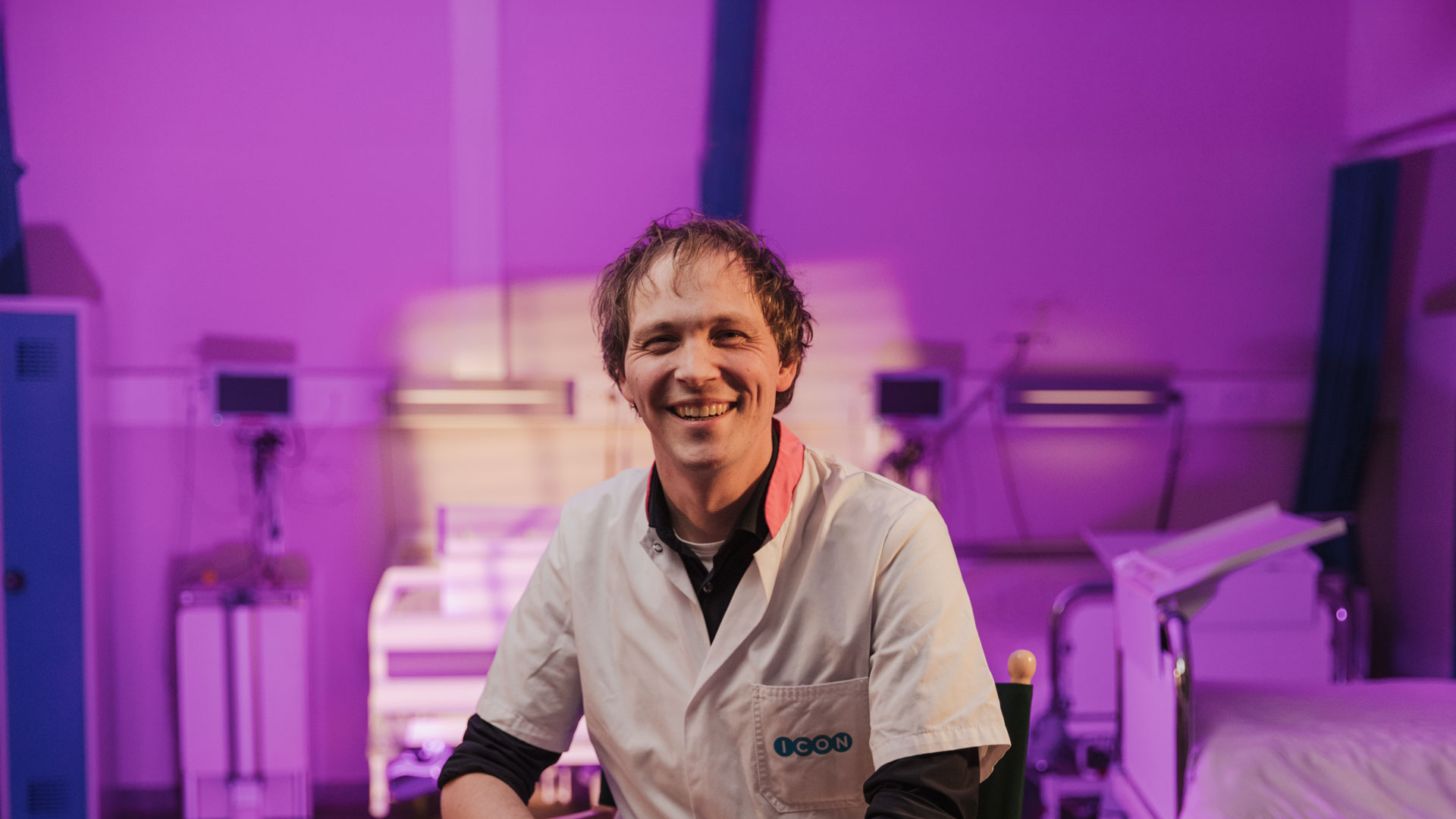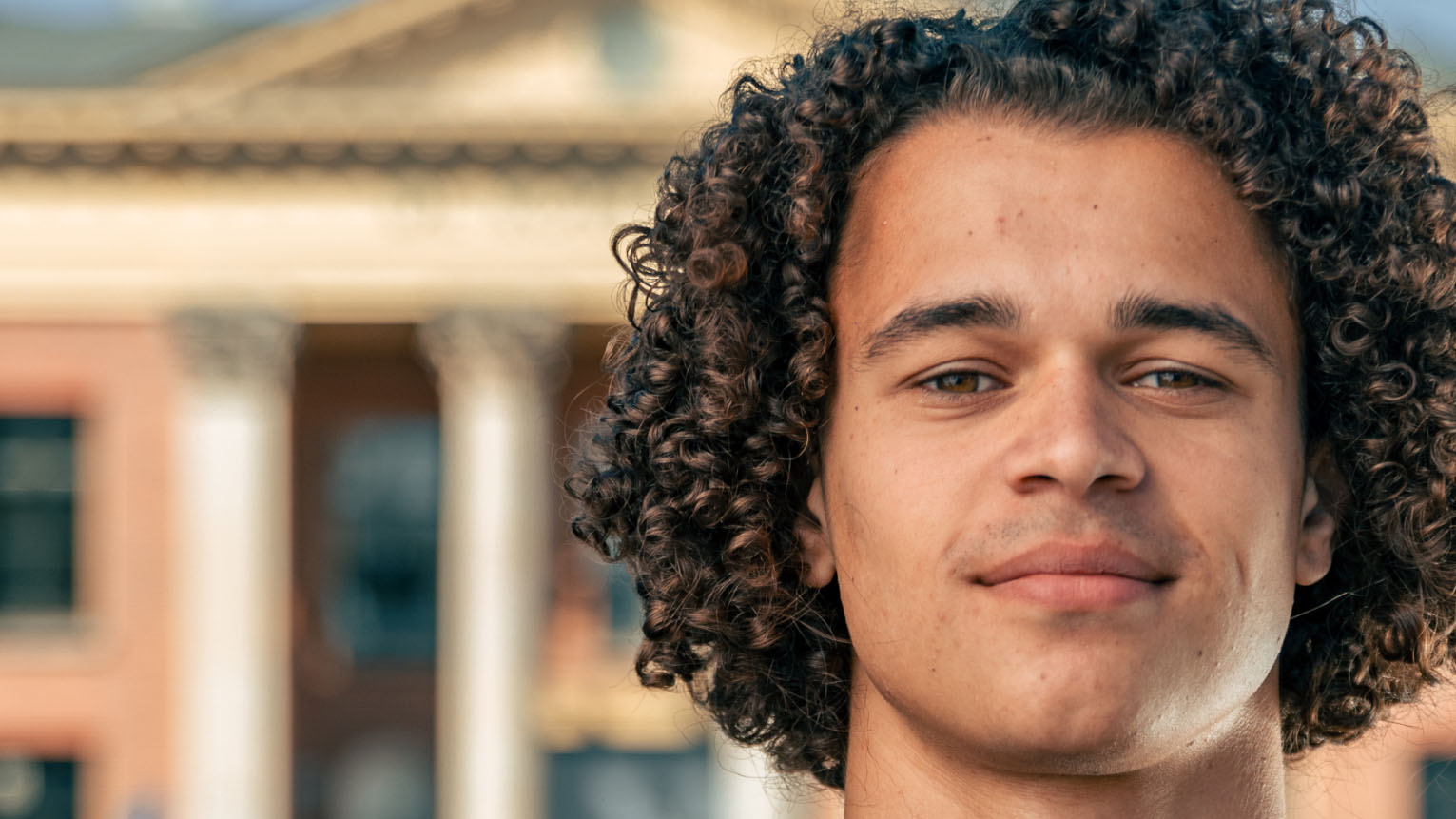
Staying at the research center
What does the schedule look like?
Curious what your days at the research center will look like? For the most part, you can decide how to spend your time, but there are always fixed moments when research procedures take place. The exact schedule depends on the research. Below, we’ll show you what the four main types of days usually look like.
💡 Tip: At the bottom of the page, you can take a virtual tour of the research center.
Arrival day
On the first day, you usually arrive late morning or early afternoon. You’ll start with a short medical check-up to see if your health has changed. After that, you’ll receive information about the research, the house rules, and a tour of the facilities. You’ll also be assigned a bed. You’ll share a room with at least one other participant.
On this day, you’ll also find out whether you are officially a participant or placed on reserve. We always invite one or two reserves, since some people may drop out after the check-up. If you are a reserve but end up not taking part, you’ll still receive compensation for your stay and travel, and you’ll get priority for a future research.
For some studies, you’ll immediately receive an indwelling cannula (a small flexible tube in your arm) for blood sampling. Often, this is only for the dosing day. This way, you won’t need to be pricked multiple times. At the end of the day, a staff member will check whether the cannula is still in place.
You’ll also have two daily well-being talks with a doctor or research staff, where you can briefly share how you’re doing.
At midnight, you’re expected to be in your room and the lights go out. You don’t need to sleep yet, but you should stay quiet for those who want to.
Example schedule – Arrival day
|
14:00 |
Arrival + part 1 of short medical check (blood sample, urine sample, weight) + research explanation |
|
14:30 |
Snack |
|
15:30 |
Part 2 of short medical check (ECG, blood pressure, heart rate, temperature) |
|
16:00 |
Physical exam |
|
18:00 |
Dinner |
|
19:30 |
Well-being talk |
|
20:00 |
Placement of cannula |
|
21:00 |
Snack + explanation about dosing day |
|
22:30 |
Cannula check |
Dosing day
This is the day when most research procedures take place. Dosing almost always happens in the morning. You’re often required to be fasting, but sometimes you’ll need to eat beforehand—for example, a high-fat or low-fat breakfast. This helps researchers see how food influences the medication.
Example schedule – Dosing day
|
07:00 |
Wake up + glass of water |
|
07:10 |
Cannula check |
|
07:15 |
Well-being talk |
|
07:20 |
ECG + measurements (temperature, blood pressure, heart rate) |
|
07:50 |
Blood sample via cannula |
|
08:00 |
Dosing |
|
08:55 |
Blood pressure + heart rate check |
|
09:00 |
Blood sample via cannula |
|
09:05 |
Breakfast in bed (sometimes you must remain lying down) |
|
10:00 |
Blood sample via cannula |
|
11:00 |
Blood sample via cannula |
|
11:50 |
ECG + blood pressure and heart rate check |
|
12:00 |
Blood sample via cannula |
|
12:05 |
Lunch |
|
13:00 |
Blood sample via cannula |
|
14:35 |
Snack |
|
16:00 |
Blood sample + measurements (temperature, blood pressure, heart rate) |
|
17:00 |
Well-being talk + cannula check |
|
17:30 |
Dinner |
|
20:00 |
Blood sample via cannula |
|
21:00 |
Snack |
|
22:00 |
Final blood sample + removal of cannula |
Een reguliere dag
A regular day
After dosing day, there are often several more days of stay. These are more relaxed and give you lots of free time. The day always starts with a well-being talk and a few measurements, followed by breakfast.
Activities
On regular days, you can often go for a walk with the group, play a game of table tennis, or relax on the balcony. For longer stays, there may also be outings such as bowling, a boat tour, or a museum visit. Inside the research center, activities such as yoga sessions, chair massages, karaoke, or bingo nights are organized.
You can also use your time to rest, study, work, or socialize with fellow participants.
Example schedule – Regular day
|
07:30 |
Well-being talk |
|
07:55 |
ECG + measurements (blood pressure, heart rate) + blood sample |
|
08:00 |
Breakfast |
|
09:30 |
Snack |
|
11:30 |
Lunch |
|
13:30 |
Snack |
|
17:00 |
Well-being talk |
|
17:30 |
Dinner |
|
20:30 |
Snack |
Departure day
The last day of your stay is usually short. In the morning, some final measurements are taken, and the doctor carries out a physical exam. After that, your stay is over, and you’re free to go home.
Example schedule – Departure day
|
07:30 |
Well-being talk |
|
07:50 |
ECG + blood pressure check + blood sample + removal of cannula |
|
08:00 |
Breakfast |
|
09:00 |
Physical exam |
|
10:00 |
Departure from the research center |
Short visits and follow-up check
After your stay, you may need to return to the research center one or more times for a short visit. These are usually quick check-ins for things like blood sampling or providing a urine sample. Often, you can come by at any time within a set time frame, which will be arranged with you in advance.
After every research, there’s always a follow-up check. Sometimes this happens on your last day at the center, but usually, you’ll come back for it later. During your stay, we’ll already schedule the appointment.
We transfer your compensation within 30 days after the follow-up check, though usually much sooner.
What should you bring?
Not much! Basically just your clothes and toiletries. We’ll provide:
- A made-up bed and clean towels
- Breakfast, lunch, dinner, and snacks
- Washing machines you can use
There are also recreation rooms with:
- TVs (with Netflix)
- PlayStation 5 with various games
- Board games and books
Depending on the wing, there may also be extras like a pool table, air hockey, or darts. Some participants bring their own PlayStation, laptop, or gaming PC—that’s also fine!
💡 Tip: Bring slippers. Walking barefoot or in socks is not allowed.
Forgot something or feel like shopping? Delivery services regularly drop off packages for participants.
Follow Daniëlle in the research center


